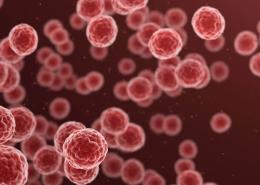Improving Metastatic Breast Cancer Care for Underserved Populations

Globally, breast cancer continues to be the most common invasive cancer in women, and one of the most common forms of cancer overall.1 While significant advances have been achieved, especially in metastatic disease, challenges beyond treatments remain, especially disparities created by structural, socioeconomic, socio-environmental, and biological factors. A recent 2021 publication reveals both the challenges facing underserved patient populations with metastatic breast cancer (mBC) in Europe, and suggests actionable solutions to address each key challenge.
No one should be disadvantaged in their fight against mBC. It is time to move beyond simply documenting the problems and to act on behalf of every person living with mBC. Every action—big or small—can make a difference. And there are initiatives in place, right now, all over the world, that the breast cancer community can learn from, adapt, and implement that are helping to address the need for:
- Improved awareness and amplification of the mBC patient’s perspective
- Better and wider implementation of high-quality guidelines for mBC
- Improved mBC understanding in non-oncologists and better communication between primary care physicians (PCPs), oncologists, and patients
- Improved awareness of and tailored approaches to support patients with mBC in multicultural communities
- Improved mBC data gathering and clinical trials and
- Addressing issues within the workplace
Today, the global breast cancer community is more empowered than ever before. Many are taking active roles in improving mBC data gathering and clinical trial registries (e.g. EUROCARE, AROME, or IARC in Lyon, France), and some provide culturally tailored guidance and content (e.g. the Breast Cancer Project by Race Equality Foundation, or the MOPA, Muslim and Palliative Care Antwerp). Together, Pfizer and the ABC Global Alliance are providing community-based resources from across the globe that are designed to address the unique needs of hard-to-reach patient populations with mBC, as well as share examples from the global community.
To learn about what breast cancer advocates around the world are doing to help support hard-to-reach patient populations, check out the Hard-to-Reach ABC/MBC Communities toolkit.
![]()





